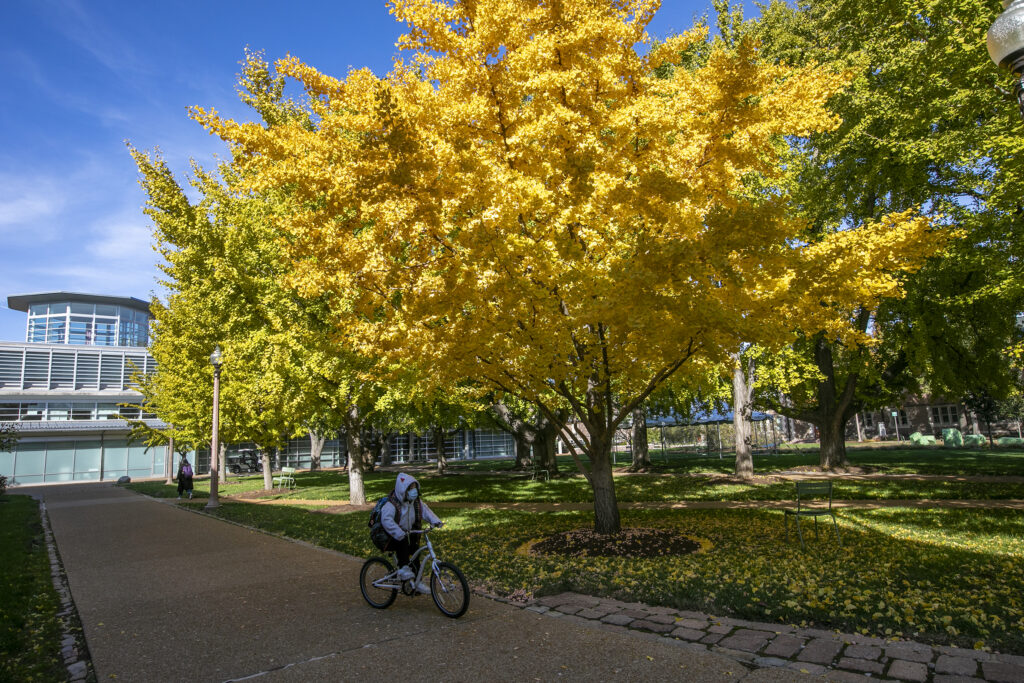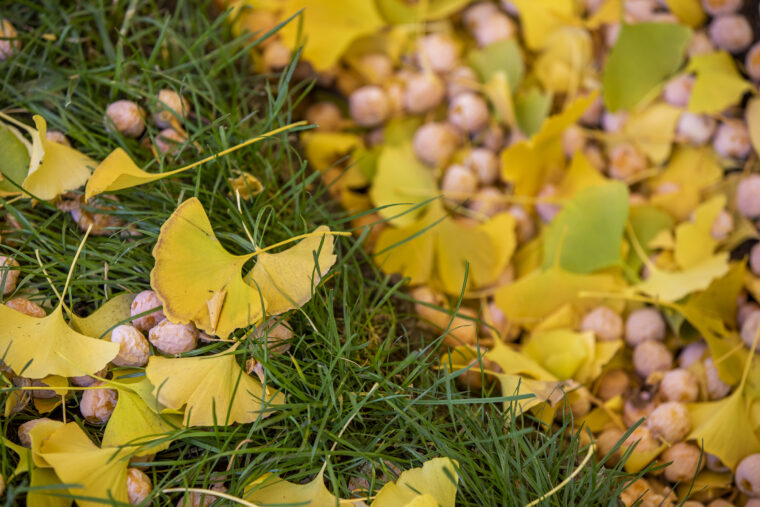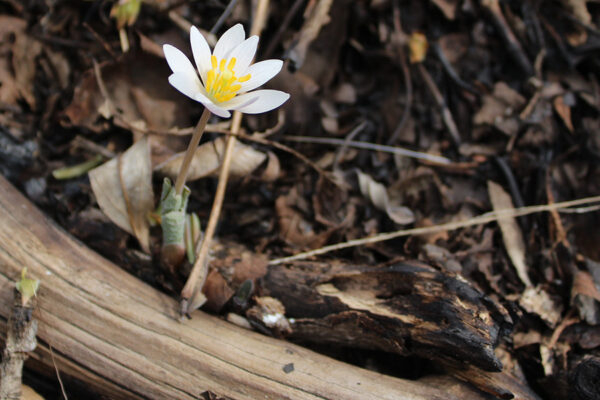Washington University’s glorious ginkgo allée, located just east of the John M. Olin Library, was part of the historic Cope and Stewardson plan for the campus. The ginkgo tree’s unique fan-shaped leaves turn brilliant golden yellow in fall.

The gingko tree is also an example of a dioecious plant: one that has either male or female flowers, not both. Such sexual specialization comes at a cost to plants. But even so, hundreds of land plant lineages have independently evolved separate sexes.
Why and how this happened has been a longstanding question for biologists. Susanne S. Renner, honorary professor of biology in Arts & Sciences, is co-author of a new review that tackles the genetic basis of sex determination in plants. The study was published in Nature Plants in March.
Renner is a well-known evolutionary biologist with a background in plant systematics and a particular interest in reproductive biology. Renner recently moved back to St. Louis after more than 17 years working as director of the Munich Botanical Garden and Herbarium, which is among the world’s largest herbaria. She concurrently served as a professor of systematic biology and mycology at the Ludwig Maximilian University, where she carried out work for the recent study.
“Plants are sedentary, so how do they get their gametes to each other? This is a big question,” she said, of the germ cell that spawns reproduction. “Getting pollen grains to the stigma — which is a tiny surface! — is not easy. For many, the solution is at least partly about which animals they interact with and in which way that the animal is used by the plant.”
But it’s not just about placement of pollen. Timing factors in, as well as other considerations.

“It may just be at 8:00 in the morning or something!” Renner laughs. “It can be so specific. And it also involves genetic systems and how flower sex is distributed.
“This line of study has now moved to the genomic era,” she said.
Related to the Nature Plants study, Renner and collaborator Niels A. Müller of the Thunen Institute recently proposed and have been invited to guest-edit a future issue of Philosophical Transactions B on plant sex chromosomes. The journal is published by The Royal Society, the independent scientific academy of the U.K.



